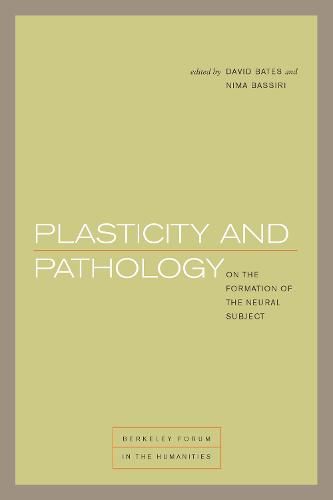Readings Newsletter
Become a Readings Member to make your shopping experience even easier.
Sign in or sign up for free!
You’re not far away from qualifying for FREE standard shipping within Australia
You’ve qualified for FREE standard shipping within Australia
The cart is loading…






With the rise of cognitive science and the revolution in neuroscience, it is now commonplace to assume that the study of a human person-a thinking, feeling, acting subject-is ultimately the study of the human brain. In both Europe and the United States, massive state-funded research is focused on mapping the brain in all its remarkable complexity. The metaphors employed are largely technological: A wiring diagram of synaptic connectivity will lead to a better understanding of human behavior and perhaps insights into the breakdown of human personhood with diseases of the brain such as Alzheimer’s. Alongside this technologized discourse of the brain as locus of human subjectivity we find another perspective, one that emphasizes its essential plasticity-in both the developmental sense and as a response to traumas such as strokes, tumors, or gunshot wounds.
This collection of essays brings together a diverse range of scholars to investigate how the neural subject of the twenty-first century came to be. Taking approaches both historical and theoretical, they probe the possibilities and limits of neuroscientific understandings of human experience. Topics include landmark studies in the history of neuroscience, the relationship between neural and technological pathologies, and analyses of contemporary concepts of plasticity and pathology in cognitive neuroscience. Central to the volume is a critical examination of the relationship between pathology and plasticity. Because pathology is often the occasion for neural reorganization and adaptation, it exists not in opposition to the brain’s normal operation but instead as something intimately connected to our ways of being and understanding.
$9.00 standard shipping within Australia
FREE standard shipping within Australia for orders over $100.00
Express & International shipping calculated at checkout
With the rise of cognitive science and the revolution in neuroscience, it is now commonplace to assume that the study of a human person-a thinking, feeling, acting subject-is ultimately the study of the human brain. In both Europe and the United States, massive state-funded research is focused on mapping the brain in all its remarkable complexity. The metaphors employed are largely technological: A wiring diagram of synaptic connectivity will lead to a better understanding of human behavior and perhaps insights into the breakdown of human personhood with diseases of the brain such as Alzheimer’s. Alongside this technologized discourse of the brain as locus of human subjectivity we find another perspective, one that emphasizes its essential plasticity-in both the developmental sense and as a response to traumas such as strokes, tumors, or gunshot wounds.
This collection of essays brings together a diverse range of scholars to investigate how the neural subject of the twenty-first century came to be. Taking approaches both historical and theoretical, they probe the possibilities and limits of neuroscientific understandings of human experience. Topics include landmark studies in the history of neuroscience, the relationship between neural and technological pathologies, and analyses of contemporary concepts of plasticity and pathology in cognitive neuroscience. Central to the volume is a critical examination of the relationship between pathology and plasticity. Because pathology is often the occasion for neural reorganization and adaptation, it exists not in opposition to the brain’s normal operation but instead as something intimately connected to our ways of being and understanding.